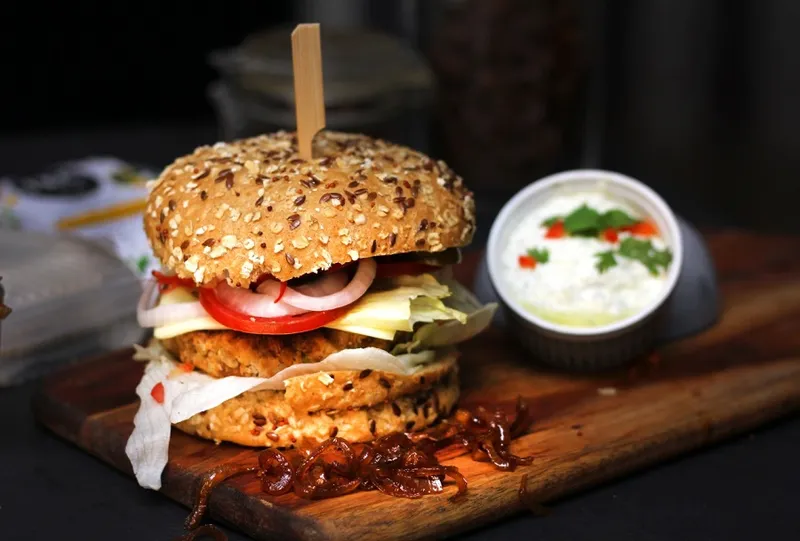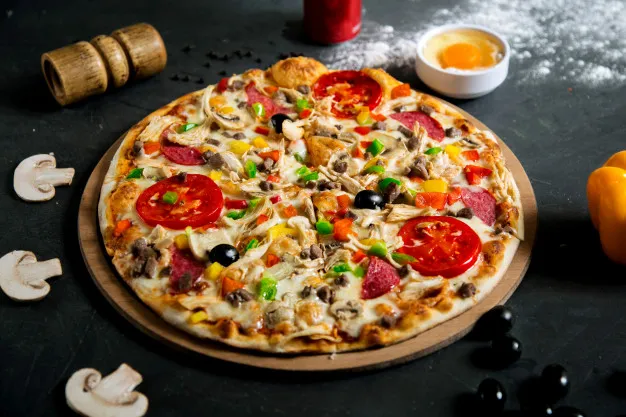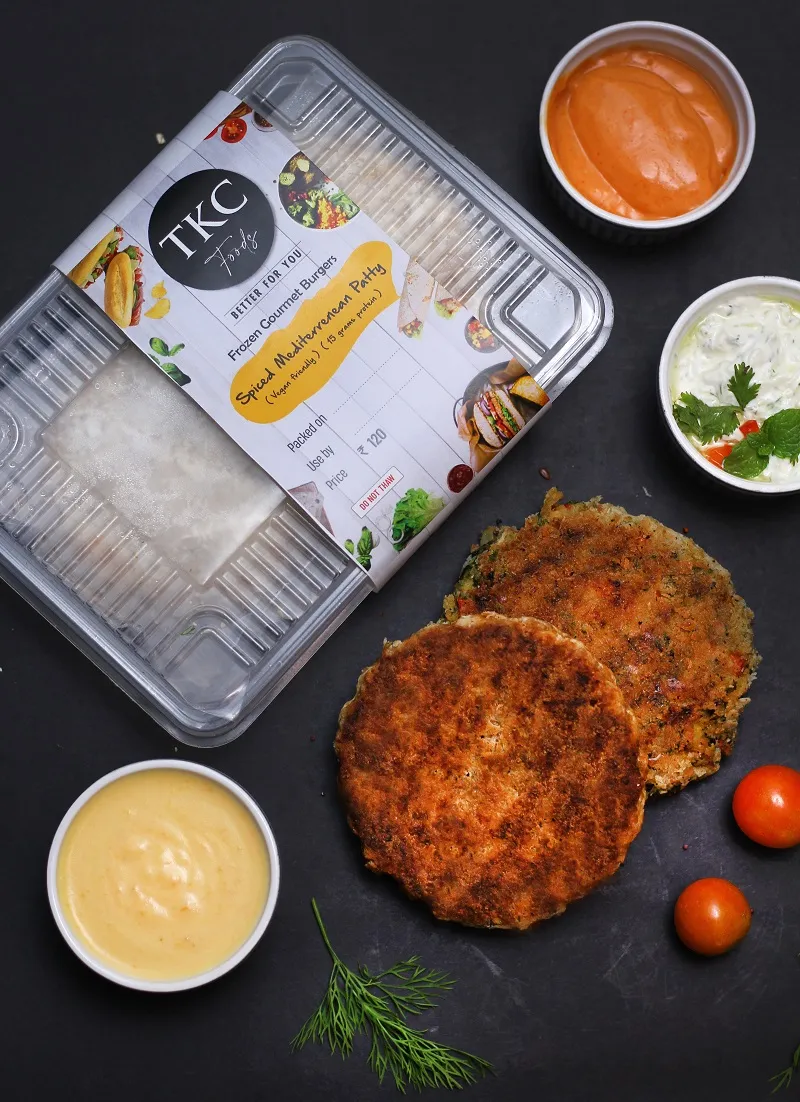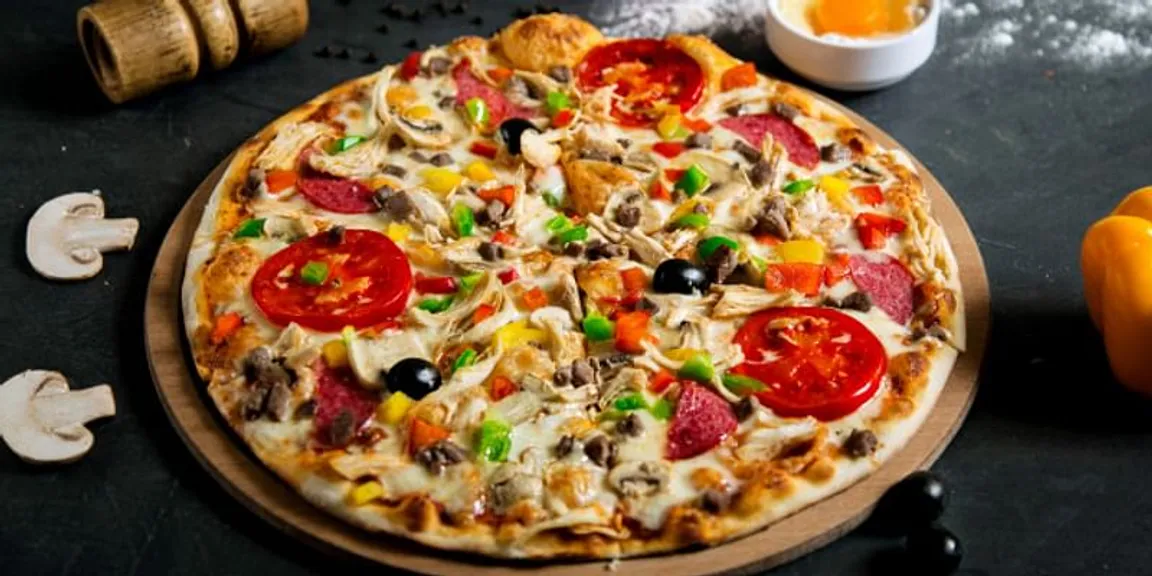This Bengaluru startup adds zing to vegetarian frozen food
Founded in 2020, Sakshi Mittal's startup TKC Foods offers ready-to-cook, plant-based frozen food prepared using local ingredients.
An attempt to add variety to staid vegetarian menus led a Bengaluru-based woman entrepreneur to set up a startup that curates and sells ready-to-cook packaged frozen food, drawing from India’s rich history of plant-based proteins.
Sakshi Mittal started her second venture, , amid the pandemic last year as she wanted to offer vegetarian dishes that use ingredients apart from the usual paneer, soya, potatoes, or the tad more exotic tofu, baby corn, and lotus stem.

Sakshi Mittal, Founder of TKC Foods
“Being a vegetarian, I used to feel frustrated with the vegetarian menus in restaurants,” says Sakshi. “I think it is time to draw from our rich local history of millets, lentils, and jackfruit.”
The venture was also well-timed, given that demand for ready-to-cook, packaged frozen items shot up in urban areas since the lockdown, as people started stocking up on food.
Some of TKC Foods’ special items are gourmet patties, pizzas, jackfruit curry for biryani, yam galouti, and cookie dough. It also offers accompaniments such as chips, dips, and breads.
“The aim is to curate packaged frozen food that offers tasty, convenient, and personalised ready-to-cook solutions,” says Sakshi.
The range starts from Rs 50 and goes up to Rs 275 for a family meal that serves four.

TKC Burger
Focus on centre-of-plate meals
TKC Foods was launched in August 2020 after Sakshi attended a boot camp for startup pitches earlier in the year.
“The idea was born out of a boot camp, which had selected my startup pitch and provided me the space and environment to shape my venture back in February 2020,” she says.
Sakshi spent the next couple of months researching and gathering insights from consumers, international food communities, and frozen food vendors.
She and her team have a conviction that plant-based functional food would play a pivotal role in replacing meat. “We aim to replace sugary proteins with centre-of-plate meals, which are fibrous, high in protein, and affordable.”
TKC Foods started out by delivering its frozen products in bulk to residential communities in Bengaluru. “We received an overwhelming response,” she says. “They would order every week and soon through word of mouth, our customer base increased.”

Kebabs by TKC
At present TKC supplies frozen food to standalone restaurants and chains, cloud kitchens, and quick service restaurants, besides communities and individual customers.
Customers can place orders on TKC Foods’ website or on MyStores. The startup has direct tie-ups with communities. With restaurants, it works on a contractual basis, where orders are customised according to requirements.
The ingredients are sourced through vendor contracts with several farm-to-fork startups.
“Our endeavour has been to source directly from farmers,” says the founder. “Fortunately, Bengaluru is blessed with vegetables and millets, and we have not faced much difficulty sourcing ingredients.”
TKC has a licence issued by the Food Safety and Standards Authority of India and Sakshi says the startup follows a strict no-GMO (genetically modified organisms), no-preservative, and no-added enhancer policy. It uses flash freezing techniques to give products a shelf life of six months and protect them from bacteria and oxidation. Vacuum sealing adds to the shelf life.
Among the team of 10 at TKC are chefs and it also works closely with food technicians.
Revenue has been growing 100 percent month-on-month since inception, says Sakshi, and she expects it to increase 10 times in the next three months.

Frozen pizza by TKC
Lessons from the first innings
Before starting TKC Foods in Bengaluru, Sakshi had launched The Kitchen Connect, a confectionery and cafe, in Delhi’s Shahpur Jat area in 2016. In that venture, she used to curate trendy, artisanal bulk products.
“We had a special dietary division too for people with food allergies and intolerance,” says Sakshi, a native of Meerut.
The cafe also organised corporate workshops, and undertook catering and bulk gifting orders. Corporate clients included Cvent, IDFC FIRST Bank, and . It also offered catering services for events and direct-to-customer hampers.
Although bootstrapped since inception, The Kitchen Connect operated on positive unit economics and notched up 25-30 percent contribution margins during its three-and-a-half-year run, says Sakshi.
Sakshi had to shut down the business sometime after she got married in November 2018 and moved to Bengaluru. “A personal and professional turn of events made me shut my facility in Delhi and that is my biggest regret.”
However, during the pandemic Sakshi rediscovered her love for food and decided to open her second innings as an entrepreneur.
“My heart has always been in menu curation and product development, and if there was anything that would help me unwind, it was looking at menus and reading labels in supermarkets,” she says.
Knowledge of both worlds
Prior to turning entrepreneur, Sakshi had gained knowledge about the food business as an intern chef at Dusit (now The Roseate) in 2015. She learnt about procurement, hiring the right talent, hierarchy in the kitchen, and documentation of recipes, among other things.
An economics graduate from Hindu College, Delhi, with an MBA from University of Georgia, Sakshi had earlier worked in equity research for seven years in companies such as Morgan Stanley, Aditya Birla Group, and ICICI Prudential AMC. She had also cleared two levels of Chartered Financial Analyst in the US.
While researching and developing financial models for portfolio companies in India, she got interested in the consumer sector.
“One of those days I got to analyse the IPO of Jubilant FoodWorks (master franchise for Domino’s Pizza in India),” she recalls. “The sheer exuberance in the consumer sector, with projections of multi-year double-digit growth, got me to shift my focus to the sector.”
Although she worked for another three years, she knew her “ultimate calling is in the food space”.
“My parents could not understand why I would leave a well-respected and sought-after job to enter an unorganised industry, where one is known to work till late into the night,” says Sakshi. “It was my brother who never doubted my choice and became my biggest source of strength and confidence, and also my biggest critic.”
Expansion plans
Only seven months old, TKC Foods plans to extend its customer base to every corner of Bengaluru. It also aims to collaborate with organised retailers in the months ahead.
“Strategically, we are looking to actively hire talent to penetrate into organised retail and strengthen our team as well,” says Sakshi.

Spiced Mediterranean Patty by TKC
By the end of this year, TKC Foods plans to expand its reach to Mumbai, Delhi-NCR, and Hyderabad.
The frozen food market in India was valued at Rs 8,527 crore in 2019 and is expected to touch Rs 19,296 crore by 2024 clocking a compound annual growth rate of 17.74 percent during the period, says a 2020 report by Research and Markets.
TKC Foods’ top competitors in the frozen foods segment include McCain, Meatzza, Kuppies, Kohinoor Foods, and Sumeru Foods.
“We see tremendous opportunity for a lot of collaboration with supply chains, farm-to-fork players, as well as cold chain delivery startups that are working to grow their share in this market,” says Sakshi.
She has also pivoted and restarted The Kitchen Connect, this time in Bengaluru, offering food workshops and gourmet catering services.
Edited by Lena Saha








